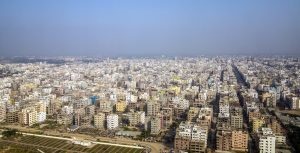Electricity supply across Bangladesh has been restored after the South Asian country plunged into a blackout following the failure of its national power grid, officials said.
The blackout, which impacted much of the country, started at 2:05 p.m. on Tuesday and lasted for nearly seven hours before power was completely restored at 9 p.m. It was not immediately clear what caused the glitch.
Many large shopping malls in the capital, Dhaka, closed early on Tuesday evening. Elsewhere, people gathered at fuel stations to collect diesel to run standby generators and market vendors operated amid candlelight.
Nasul Hamid, junior minister for power, energy, and mineral resources, said in a statement that he regretted the “temporary inconvenience” caused by the power failure.
Officials at the state-run Bangladesh Power Development Board earlier said power transmission had failed in the eastern part of the country.
All power plants tripped and electricity was cut in Dhaka and other big cities, said Shameem Hasan, a power department spokesman.
Bangladesh’s recent impressive economic growth has been threatened by power shortages since the government suspended operations of all diesel-run power plants to reduce costs for imports as prices have soared. The diesel-run power plants produced about 6 percent of Bangladesh’s power generation, so their shutdowns cut output by up to 1500 megawatts.
Earlier this month, Faruque Hassan, president of the Bangladesh Garment Manufacturers and Exporters Association, said that the situation is so serious that garment factories are without power now for around four to 10 hours a day. Bangladesh is the world’s second-largest garment exporter after China, and it earns more than 80 percent of its total foreign currency from exports of garment products each year.
Last month, the Asian Development Bank said in a report that Bangladesh’s economic growth would slow to 6.6 percent from its previous forecast of 7.1 percent in the current fiscal year.
Weaker consumer spending due to sluggish export demand, domestic manufacturing constraints and other factors are behind the slowdown, it said.
































